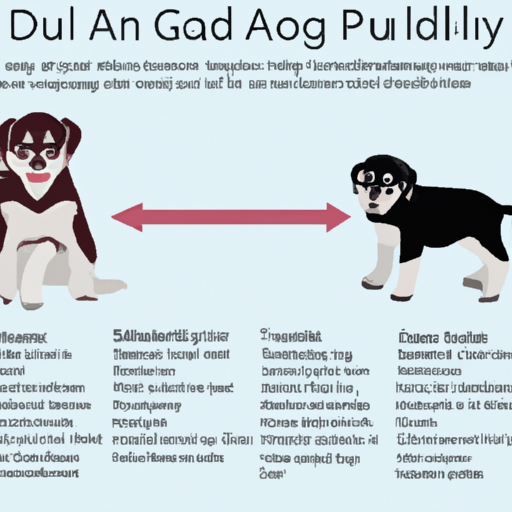Every pet owner revels in the joy of raising a puppy. They are cute, cuddly bundles of joy that bring happiness and energy into your life. But puppies, like all living things, grow up. As a caregiver, you might often wonder, “at what age are dogs not puppies?” Let’s dive into this topic to understand the transition from puppyhood to adulthood in dogs.
Table of Contents
1. Understanding Puppy Growth
2. The Transition to Adulthood
3. Factors Affecting Puppy Growth
4. Recognizing the Signs of Maturity
5. Frequently Asked Questions
Key Takeaways
– The age at which a dog ceases to be a puppy largely depends on its breed.
– Small breed dogs mature faster than large breed dogs.
– The transition from puppy to adult is not only physical but also behavioral.
Understanding Puppy Growth
A dog’s growth can be divided into various stages, each characterized by specific developments. Generally, dogs are considered puppies until they reach one year of age, but this varies significantly between breeds. For instance, small breed dogs mature faster than large breeds. A Chihuahua might reach adulthood at 10 months, whereas a Great Dane might take up to 2 years.
It’s worth noting that a puppy’s growth is not just about getting bigger. There are many developmental milestones that puppies pass through on their journey to adulthood. From learning social skills to developing physical capabilities, each stage of growth offers a fascinating glimpse into the life of our four-legged friends.
If you’re interested in understanding more about the stages of puppy growth, here is a helpful resource.
The Transition to Adulthood
The transition from puppyhood to adulthood is gradual and often hard to pinpoint. However, there are certain signs that indicate your puppy is maturing.
One of the most noticeable changes is in their physical appearance. Puppies start losing their baby teeth around four months of age, and by seven months, most dogs will have a full set of adult teeth. Similarly, you’ll notice changes in their body size, weight, and coat.
Behavioral changes are also a key indicator of maturing. Puppies are known for their boundless energy and curiosity. As they transition into adulthood, you’ll notice a decrease in hyperactivity and an increase in independence.
You can learn more about dog behavior at every age here.
Factors Affecting Puppy Growth
Several factors influence the rate at which a puppy grows.
- Breed: As mentioned earlier, small breed dogs mature faster than large breeds.
- Nutrition: A well-balanced diet is essential for a puppy’s growth. Lack of proper nutrition can lead to stunted growth and other health issues.
- Health: Illnesses and parasites can affect a puppy’s growth rate.
As a caregiver, it’s crucial to provide your puppy with the right diet and health care. Here’s a useful guide on taking care of your puppy.
Recognizing the Signs of Maturity
Signs of Physical Maturity
- Full set of adult teeth
- Growth in size and weight
- Development of secondary sexual characteristics
Signs of Behavioral Maturity
- Decrease in hyperactivity
- Increase in independence
- Changes in social behavior with humans and other dogs
Remember, every dog is unique, and these signs may appear at different times. The best way to understand your dog’s growth is to observe them closely and consult a vet if needed.
Frequently Asked Questions
1. At what age are dogs no longer puppies?
Most dogs are considered adults at one year of age, but this varies between breeds.
2. How can I tell if my puppy is becoming an adult?
Changes in physical appearance and behavior are key indicators of maturing.
3. Do all dogs mature at the same rate?
No, the rate of maturation varies between breeds and individual dogs.
Understanding the growth and development of your puppy can help you provide the best care possible. By knowing what to expect, you can prepare for each stage and enjoy the journey of watching your puppy grow into a healthy, happy adult.
For more information on dog growth and development, check out this article on dog ages.



